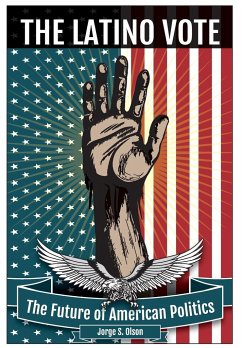
Mobilizing the U.S. Latinx Vote
Media, Identity, and Politics
Versandkostenfrei!
Versandfertig in über 4 Wochen
65,99 €
inkl. MwSt.
Weitere Ausgaben:

PAYBACK Punkte
33 °P sammeln!
This book examines the politics involved in the mobilization of the Latinx vote in America. Delving into the questions of race and identity formation in conjunction with the role of communication media, the author discusses the implications for Latinx voters and their place in the American political and racial system.













